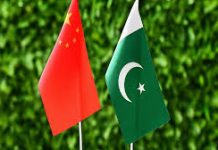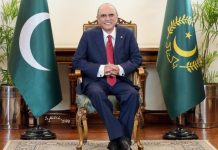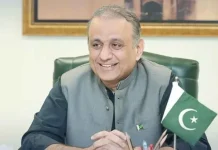ISLAMABAD:Deputy Prime Minister and Foreign Minister, Senator Mohammad Ishaq Dar on Friday underlined that the regional sharing of innovation and expertise in the realm of renewable energy could help South Asia to collectively reduce its dependency on fossil fuels and embrace a greener and sustainable future. The deputy prime minister (DPM) and foreign minister was virtually addressing the South Asian Federation of Accountants (SAFA) Conference 2025 titled “South Asia’s Economic Outlook: Challenges & Opportunities”. “Renewable Energy is a deep dive into opportunities and innovations. Energy security is vital for economic stability. In Pakistan, energy crisis has long been a challenge but it is also an area where immense opportunity lies. It has one of the largest untapped renewable energy potential in the world with solar and hydropower committed to diversify our energy mix,” Dar said. DPM Senator Dar said the world was facing intricate problems ranging from global economic uncertainties, impact of climate change and need of a robust governance to navigate these turbulent times. “Yet it is also a moment of great opportunity. Pakistan has mapped a journey for reforms and transformation aimed at stabilizing our economy and fostering sustainable growth. We are focused on creating an ecosystem that supports investment, promotes exports and harnesses our potential of human capital,” he added. The deputy prime minister believed that sharing insights and best practices at this forum would help the participating nations to chalk a path towards more effective governance across the region and each session of this conference underscored a critical aspect of South Asia’s economic future. He said a strategic trade policy framework, energy diversification initiatives and digital transformation agenda were a few examples of Pakistan’s commitment to building a resilient economy. Policy reforms and governance were need of the hour and no longer optional but rather imperatives, he said, adding, “In Pakistan this means addressing structural bottlenecks, strengthen institutions in ensuring accountability and transparency at every level. Pakistan’s ongoing reforms in tax policy, public financial management and regulatory framework aimed at creating an environment conducive to business and investment, he added. The DPM highlighted that trade barriers were real impediments to regional growth as South Asia was one of the least integrated regions in terms of trade despite being home to nearly 25 per cent of the world’s population. “Intraregional trade is less than five percent of our total trade volume. In Pakistan, we recognize the need to address trade barriers both tariff and non-tariff to unlock our export potential,” he said. Senator Dar pointed out that initiatives such as preferential trade agreements, reforms in logistics, and border management were steps in that direction. He stressed that collaborative discussions at this forum could pave the way for more unified and prosperous South Asia. The DPM and Foreign Minister noted that exports of the accountancy services was a real life challenge in the digital age as accountancy profession was evolving rapidly driven by advancement in technology and globalization. “Pakistan has a wealth of talent in this field and initiatives such as ICAPs, Digital Assurance program and the export of the accountancy services are aligned with this shift. However, challenges such as adapting to international standards, ensuring data security and building global networks persists,” he said. The DPM mentioned that the session provided a valuable platform to discuss solutions that would enable the field professionals to thrive in digital economy. The challenges, he said nations face at present was transcending national borders whether it was economic recovery, climate change and technological disruption. These were global phenomenon that demanded regional collaboration, he emphasized. South Asia with shared history cultural ties and economic interdependence was uniquely positioned to drive collective solutions, he said, adding, “This conference underscores the importance of dialogue and shared action. It is a platform to exchange ideas, build partnerships and foster innovation.” As a region, he said it had the potential to not only overcome its challenges but set an example for the world. He commended SAFA, ICAP and all the participants for organizing the impactful moot as their efforts demonstrated the power of collaboration and the unwavering believe in the potential of South Asia. “Our strength lies in unity and future depends on decisions made today. The outcomes of this conference will serve as a corner stone for more stronger, prosperous and resilient South Asia,” he concluded.






















